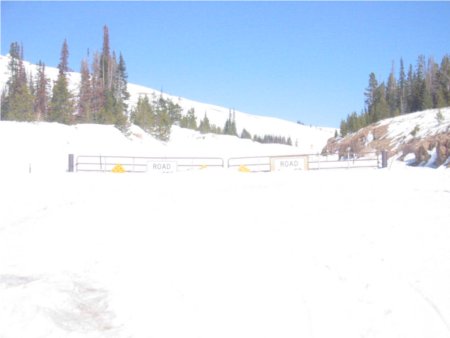Difference between revisions of "Globalhash"
imported>OtherJack m (→Winners: fixed wikification) |
imported>Relet (→Locations) |
||
| Line 22: | Line 22: | ||
==Locations== | ==Locations== | ||
| − | |||
| − | |||
*Hashpoint lists or overview maps requested with the [[User:Ekorren/Hash_Inquiry_Tool|Small Hash Inquiry Tool]] always include the globalhash of today and upcoming dates as available. | *Hashpoint lists or overview maps requested with the [[User:Ekorren/Hash_Inquiry_Tool|Small Hash Inquiry Tool]] always include the globalhash of today and upcoming dates as available. | ||
| − | + | *[http://relet.net/geco] always includes the globalhash for the selected date - you may have to zoom out to see it. On the other hand, if you see any second marker in or around your graticule, you know you've struck gold. | |
* DAGAAG ([[User:Danatar|Danatar]]'s [http://wiki.xkcd.com/geohashing/Image:Globalhash-at-a-glance.png Approximate-Globalhash-At-A-Glance manual lookup map]): If the online tool doesn't work and you want to avoid difficult calculations, just have a quick glance at the approximate location. Take the W30-adjusted coordinate offset (e.g. from the peeron map, but don't use American graticules) and compare it with the map using the black grid lines. If this gives a location at the other end of the world, you don't have to think about it any more, but if it is near you, you will have to use a calculator to get the exact location. [http://wiki.xkcd.com/geohashing/Image:Globalhash-at-a-glance-example.png See example here] (for 2008-09-10 like in the other example above). | * DAGAAG ([[User:Danatar|Danatar]]'s [http://wiki.xkcd.com/geohashing/Image:Globalhash-at-a-glance.png Approximate-Globalhash-At-A-Glance manual lookup map]): If the online tool doesn't work and you want to avoid difficult calculations, just have a quick glance at the approximate location. Take the W30-adjusted coordinate offset (e.g. from the peeron map, but don't use American graticules) and compare it with the map using the black grid lines. If this gives a location at the other end of the world, you don't have to think about it any more, but if it is near you, you will have to use a calculator to get the exact location. [http://wiki.xkcd.com/geohashing/Image:Globalhash-at-a-glance-example.png See example here] (for 2008-09-10 like in the other example above). | ||
| − | |||
| − | |||
== Winners == | == Winners == | ||
Revision as of 11:33, 31 March 2012
The decimals generated by the geohashing algorithm can also be used to generate a single point on the globe instead of one for each graticule and this award celebrates those lucky or mad enough to pursue that single point.
To generate this point take W30 decimals for a date (to make it global) and multiply the latitude by 180 and subtract 90, and the longitude by 360 subtracting 180. This will generate a single point on the globe which is today's only globalhash.
Proof is the same as any hash, but at the single day's coordinates. Good luck! The odds of the globalhash falling in your graticule are 1 in 64,800!
33.387042373499,-169.969011914770
Example
For 10 September 2008, the W30 decimals generated were 0.2642955149758937 and 0.45661491254372155 for latitude and longitude respectively.
0.26429551497589370 * 180 = 47.5731926957 - 90 = -42.4268073043° Latitude 0.45661491254372155 * 360 = 164.3813685160 - 180 = -15.6186314840° Longitude
Or 42.4268073043° S, 15.6186314840° W which is in the south Atlantic Ocean, near Gough Island.
Locations
- Hashpoint lists or overview maps requested with the Small Hash Inquiry Tool always include the globalhash of today and upcoming dates as available.
- [1] always includes the globalhash for the selected date - you may have to zoom out to see it. On the other hand, if you see any second marker in or around your graticule, you know you've struck gold.
- DAGAAG (Danatar's Approximate-Globalhash-At-A-Glance manual lookup map): If the online tool doesn't work and you want to avoid difficult calculations, just have a quick glance at the approximate location. Take the W30-adjusted coordinate offset (e.g. from the peeron map, but don't use American graticules) and compare it with the map using the black grid lines. If this gives a location at the other end of the world, you don't have to think about it any more, but if it is near you, you will have to use a calculator to get the exact location. See example here (for 2008-09-10 like in the other example above).
Winners
The following Geohashers have won this award, and have supplied proof.
- NWoodruff & LuxMundi - 2010-01-12 global
- Robyn & Wade - 2010-03-28 global
- Yann Vernier, Klas Meder Boqvist & Roos - 2011-08-29 global
- B_cereus at 2011-11-10 global
- Per S at 2011-11-30 global
- Katie Hess, Dale Mole, Joselyn Fenstermacher, Robert Schwarz, and Sven Lidström at 2012-02-26 global -- with Carl-Johan pulling the puppet-strings
Honorable mentions
- David Souther made it within 8 miles of the 2009-03-04 globalhash before Mother Nature turned him back.
- Dvdllr attempted a Puppet Master globalhash on 2010-09-08, with limited success.
Ribbon Template
This user earned the Globalhash achievement
|
